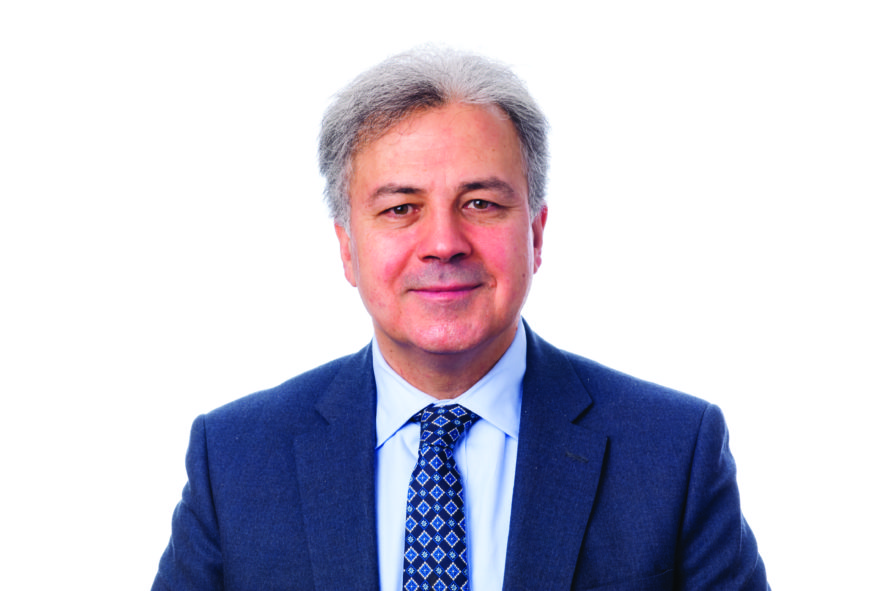Last month, US asset manager Federated Investors bought a majority stake in Hermes from the BT Pension Scheme, underscoring the ongoing consolidation across the industry. With the acquisition as the backdrop, Portfolio Adviser’s sister publication Fund Selector Asia (FSA) caught up with Nusseibeh in his London office and asked his views on some timely topics.
What’s difference between Hermes when it was owned by BT Pension Scheme and now it’s owned by Federated?
Increasingly as we grew our third-party business, it became clear that there was tension between BT Pension Scheme, which owned 100% of our shares and with 30% of that coming from BT [as an investor in Hermes funds]. In the new structure, Federated owns 60%, management has 10.5% and BT Pension Scheme 29.5%. You’ll notice that the 29.5% is almost equivalent to the amount of income they generate for the shop. I think this [structure] is more sensible in terms of allowing more resources for growth that will be more abundantly available, and for the vision and the footprint. The difference [with the new structure] is that we will enter a strong growth phase in time as we get to known each other.
Will asset management industry consolidation continue?
Consolidation will carry on. The industry has to re-position itself in two ways and the first is to redefine what fund management is. We’d say it is very high active share and integration of ESG and strong alpha. You need a strong house. Second, the industry needs to find a [broader] proposition to society. Is it just providing a fund for a 401k? If that’s all, the industry is going to face a very difficult landscape. The adoption of new technologies will shrink and change markets, even with bonds. All of us are trying to offer something else and that’s something M&A will help with. Consolidation is not a bad thing.
Is Hermes feeling fee pressure due to flows into passive?
No. The reason [asset management firms] are doing deals is because they are under fee pressure. The move to indexation, which is why fee pressure is there, is actually beneficial to us. It eats into the revenue of the ‘index + 1%’ types, the so-called active managers who occupy the middle ground and the only away they can respond to this fee pressure is to have better distribution.
If you look at our margin, we have been expanding our third-party income. The CAGR of third-party growth is 35%. We had record net flows in 2017. So we are selling [our funds] and as we sell, our margins grow.
If you look at Federated, it’s a growth story. They are one of the very few financial firms post-2008 that did not close down a single division. So this is not a merger done as a result of fee pressure, but done because it’s complementary and therefore done for the right reasons.
Is Hermes an ESG house?
We don’t have ESG funds per se, but we look at ESG factors in everything we do, including lending and property investments. I would argue one of the reasons [sales] are up is because we integrate ESG. Our fund benchmarks are standard benchmarks, so we beat the standard benchmark at more reasonable fees than our competitors charge and have a higher information ratio [on average], and we calculate our information ratio after fees.
Many managers have ESG funds that clearly do not outperform standard benchmarks.
It shows they are doing ESG wrong. ESG is not a separate thing. We don’t say ‘this is ESG and therefore buy it’. ESG is part of best practices in due diligence. One way we do ESG [for example] is to engage with companies to see if they treat the workforce well and [therefore] have a better productivity ratio than companies that do not. Less absentee days, less sick days, higher productivity.
When we invest in a building, we green the building because it brings the insurance cost down and brings the value of the building up. We don’t understand people who buy buildings and don’t green them.
Approaching ESG investing as something separate, as a do-good approach, is wonderful, but people miss the point. People have screens [in the do-good approach]: How many women are on the board, how much carbon offsetting is the company doing, etc. I admire them, but that’s not investment.
The most controversial issue right now is discussion about gender pay gaps. There are those who say you must [address the issue] for the good of society. We see it as addressing it for the good of the company. As a CEO, I’m a buyer of talent. If I only have access to half my potential supply, I’m paying a higher price. If I’m a really smart CEO, I want to expand my supply base and that’s where gender diversity comes in.
Now there is demand for ESG [products]. From millennials particularly, but older people as well. A lot of managers are responding to this customer demand. We’ve come at it the other way around by integrating ESG in the investment process.
What are your thoughts on Asia expansion plans?
In China, the geography is huge and diverse and we have to be careful how we enter it. China is the future and it’s also a market to invest in, with the growth of the middle class, environmental technology, electric car development, etc. Gradually we’ll go into China. In the mid-term I see us putting more investors and more sales on-the-ground. We want to bring out funds that are attractive for our client base in Asia, and we want to look more at China and India.









